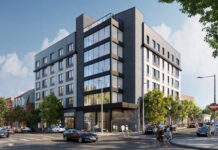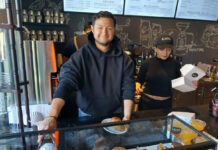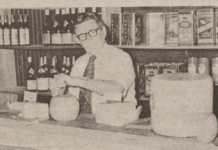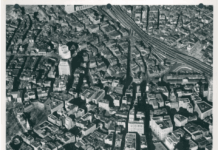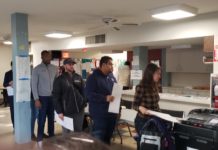by PATRICK SYNAN
SPECIAL TO EASTBOSTON.COM
In the basement of Our Savior’s Lutheran Church on Paris Street, just a block from East Boston’s Maverick Square, a few dozen residents gathered Saturday afternoon to hear the leader of an emergent social movement in El Salvador, The Popular Rebellion and Resistance Bloc (BRP). For decades, East Boston has been a major site of resettlement for the Salvadoran diasporic community, making it a natural stopping point on Fran Omar’s US tour to raise awareness of Salvadoran president Nayib Bukele’s increasing authoritarianism and help fundraise for nonprofits aligned with the country’s institutional left-wing party, the Farabundo Martí National Liberation Front (FMLN).
Since March of this year, the Central American isthmus’ smallest country has endured a state of exception, which the president aims to extend indefinitely. The basis for continued expansion of police power is ostensibly the dismantlement of gang networks throughout the country, but as media outlets across the globe have noted, such a radical response to the gang problem is not without consequences. Sources like CNN and Vice News have detailed the traumatic impacts of arbitrary detentions on both the suspects in custody and their families who fear for their safety and often depend on the income their loved ones no longer generate.
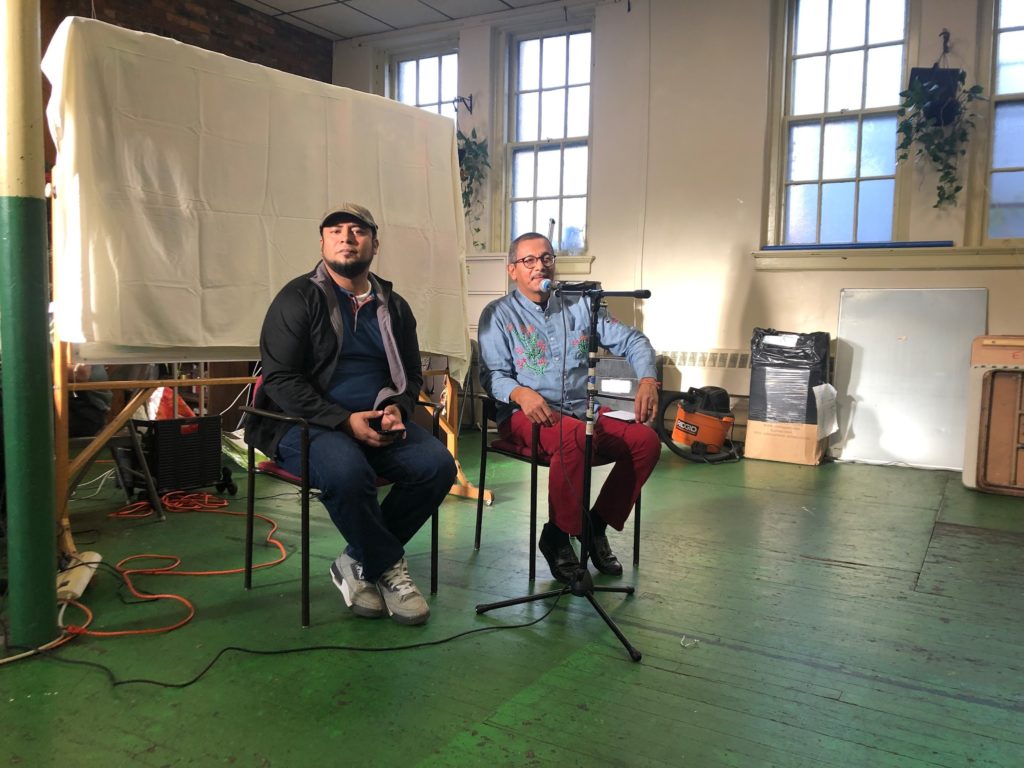
In addition to the devastation wrought on families, El Salvador’s state of exception threatens the health of its democracy, overtly restricting citizens’ freedom of speech and association and, somewhat more subtly, transferring property and land from private citizens to private enterprises tasked with advancing Mr. Bukele’s development agenda. In his speech on Saturday, Mr. Omar cited multiple examples of this emerging trend, including the construction of a mega-prison in the department of San Vicente, for which the government has expropriated the homes and lands of private citizens, and a mass arrest of young men in the Bajo Lempa region, which he claims the government is using as an intimidation mechanism to usher families off their lands and make way for additional construction projects.
Despite its more distasteful products, president Bukele exhibits a special talent for marketing his brand of statecraft. He appeared on the national political scene in 2018 when he established his own political party, New Ideas, after being expelled from the FMLN for publicly insulting its members. His willingness to embrace public controversy, his facility with social media, and his trademark habit of bucking political tradition (he often gives public addresses wearing a leather jacket and a backwards cap and once deigned to take a selfie in the middle of his address to the United Nations) have earned him an astonishing level of public support, which has hardly faded in the face of his increasingly anti-democratic policies.
Among the many receptive members of Fran Omar’s audience in East Boston, there was one skeptic. Towards the end of the event, when the floor was opened for questions, a middle-aged man approached the microphone and confessed his reluctance to denounce president Bukele’s agenda. “I prefer to see helicopters and tanks in my country than gang members roaming the streets,” he said in Spanish.
This is not an atypical viewpoint. According to CNN, president Bukele enjoyed a nearly 80% approval rating as of August, when the state of exception was well underway. For many Salvadorans, both at home and abroad, the lowered homicide rate resulting from the state of exception is worth the suspension of constitutional rights. Mr. Omar did not respond to this argument. Rather, it was the facilitator of the event, José Alemán, former consul general to El Salvador for New England, who reminded everyone in the room that the freedom to peacefully and safely express ideas was a value that should be perpetually upheld, especially now in El Salvador.
Patrick Synan is a teacher, tutor, and writer with almost a decade of experience. For six years at East Boston High School, he prepared students with limited or interrupted formal education (SLIFE) to transition into SEI classrooms.



